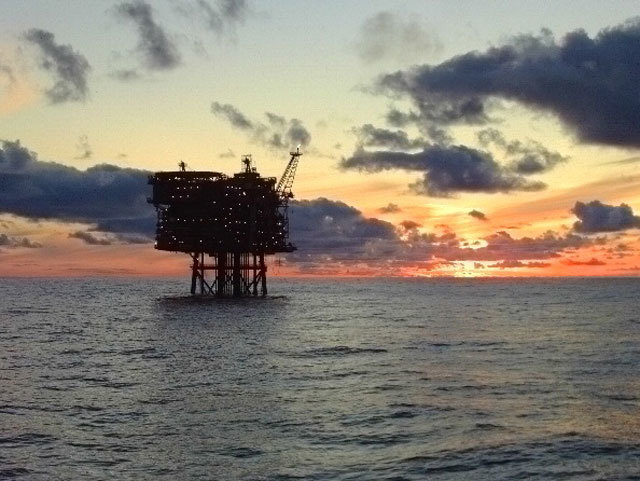
One of Scotland’s most respected economists has delivered a damning verdict on Treasury oil forecasts, arguing tax revenues over the next four years could nearly double those predicted.
Professor Sir Donald Mackay described the figures from the Office for Budget Responsibility (OBR) – which recently downgraded its outlook for the North Sea – as “precisely wrong”.
In a detailed analysis, the former advisor to the Secretary of State for Scotland – including the last four Conservatives to hold the post – backs the position taken by industry body Oil and Gas UK.
Prof Mackay notes the industry expects a major increase in production in the next two to three years as new fields such as BP Clair and Statoil’s Mariner come onstream.
The former Scottish Enterprise chairman argues Westminster has been downplaying the potential impact of oil and gas revenues on an independent Scotland, which he believes will be “much greater” than suggested.
He describes the OBR as being “hopelessly at sea” in its predictions of future oil prices, which he says are based on a flawed system that is not used by oil companies themselves.
He adds: “We don’t need to do any serious extrapolation to arrive at sensible estimates of what output is likely to be over the period to the end of this decade.
“In February 2014, the Wood Review concluded that ‘production hit a new low’ last year, but a number of larger new fields are about to come onstream in the next two or three years, and that could take production back to the level of two to three years ago where it could be sustained for the remainder of this decade”.
He adds that would yield Scottish Government tax revenues from 2014-15 to 2018-19, close to twice those of the OBR. Prof Mackay states: “I would suggest that this scenario is likely to pass the Keynesian test of being ‘roughly right’, while the OBR’s forecasts are likely to be ‘precisely wrong’.”
Last night First Minister Alex Salmond, said the UK Government’s position on oil and gas was becoming “increasingly threadbare.”
He added: “It is ever clearer that next month the people of Scotland have a choice between continued austerity with a No vote, or new prosperity and opportunity with a Yes vote.”
A Treasury spokesman said last night: “The North Sea is a hugely valuable resource, but everyone knows tax revenues are volatile and will ultimately decline. Being part of the UK helps Scotland to smooth the impact of volatile and declining tax revenues.
“Over the past two years, North Sea tax revenues were around £5 billion less than the Scottish Government’s lowest estimate. Despite this, the Scottish Government’s plans for independence rely on generating more than double the amount of North Sea tax revenues forecast by the independent OBR.
“The North Sea is a maturing basin and it needs valuable incentives from the Exchequer to sustain investment, which the UK, with its broad and diverse tax base, is able to provide.
“An independent Scotland would have to invest almost £3,800 per head – over ten times more than when the costs are spread across the whole UK – to match the estimated £20 billion the UK Government has guaranteed to provide on decommissioning relief in the North Sea.
“It is not credible for the Scottish Government to say they would sustain current tax incentives for the oil industry and set up an oil fund, while cutting corporation tax below the UK level and increasing welfare benefits. How would they fund all these tax cuts, ensure increase public spending and put money aside for an oil fund?”
Recommended for you
